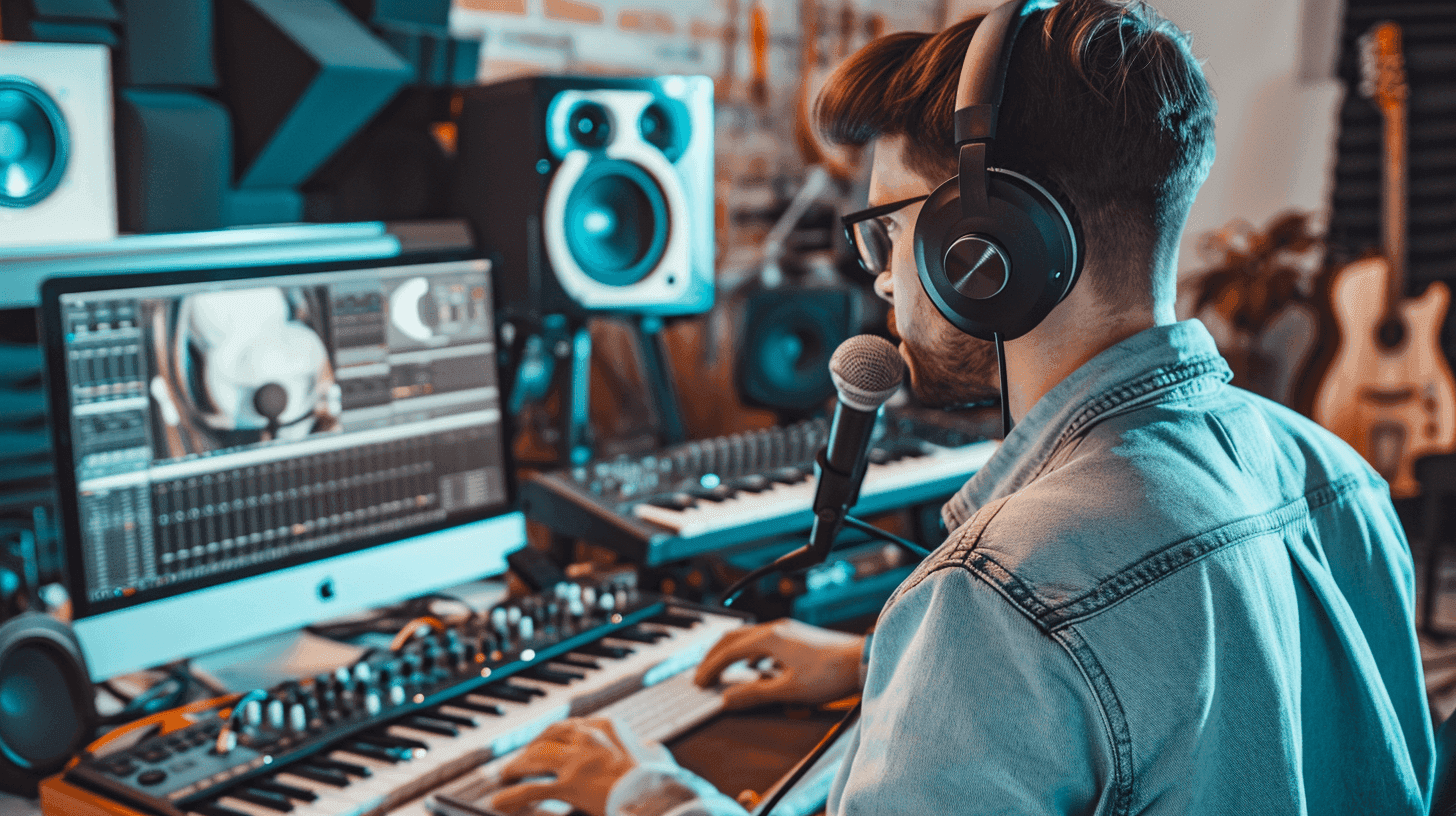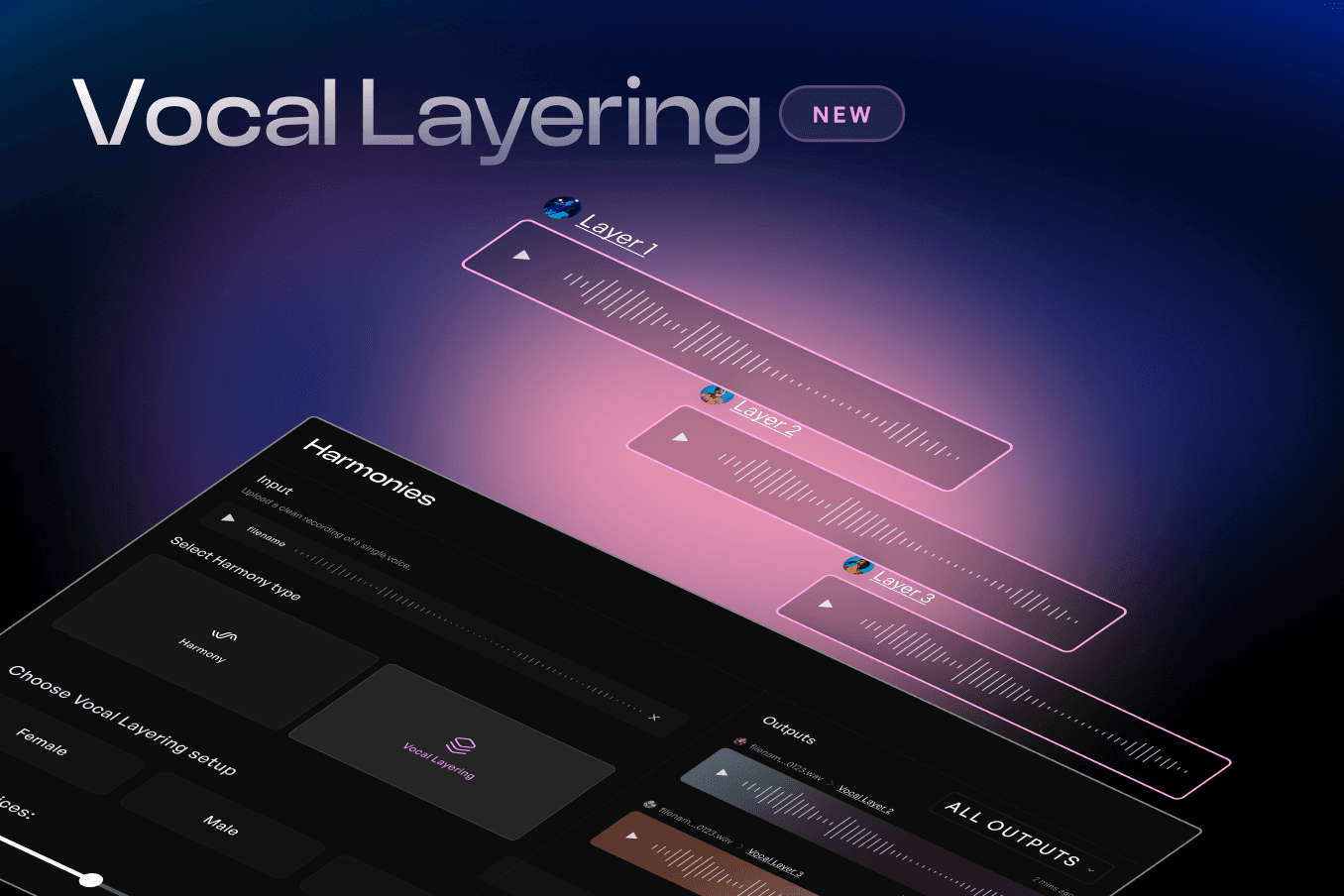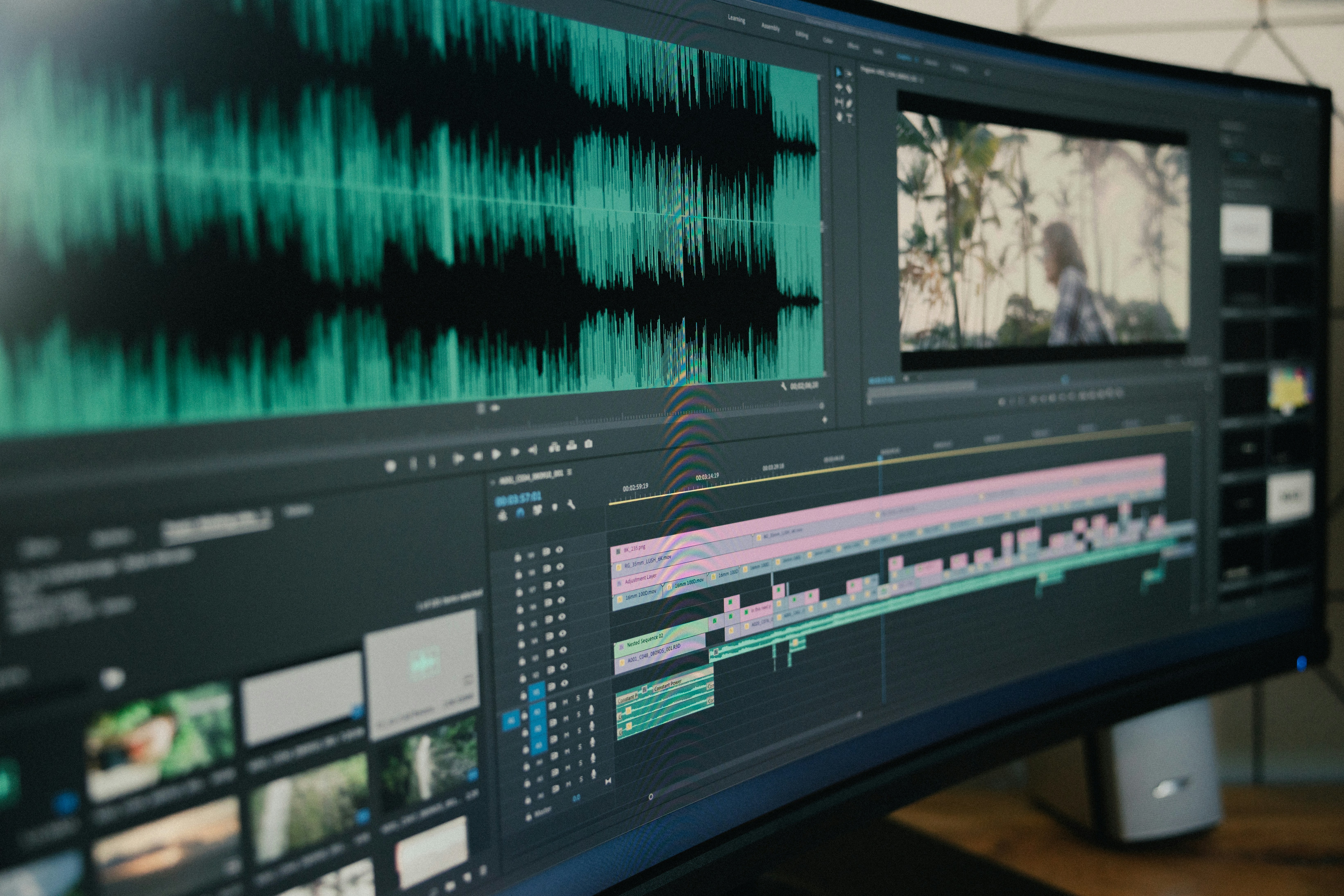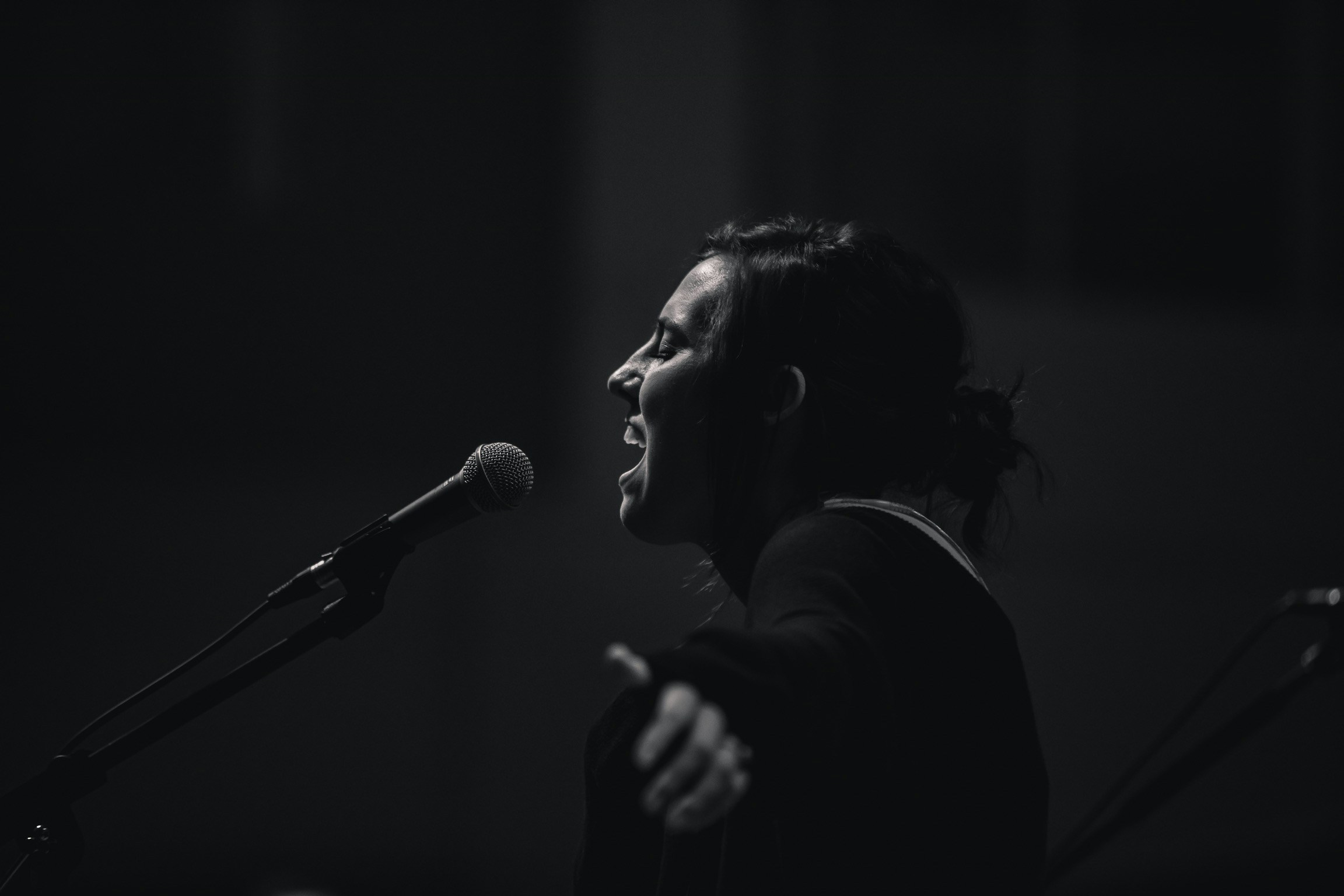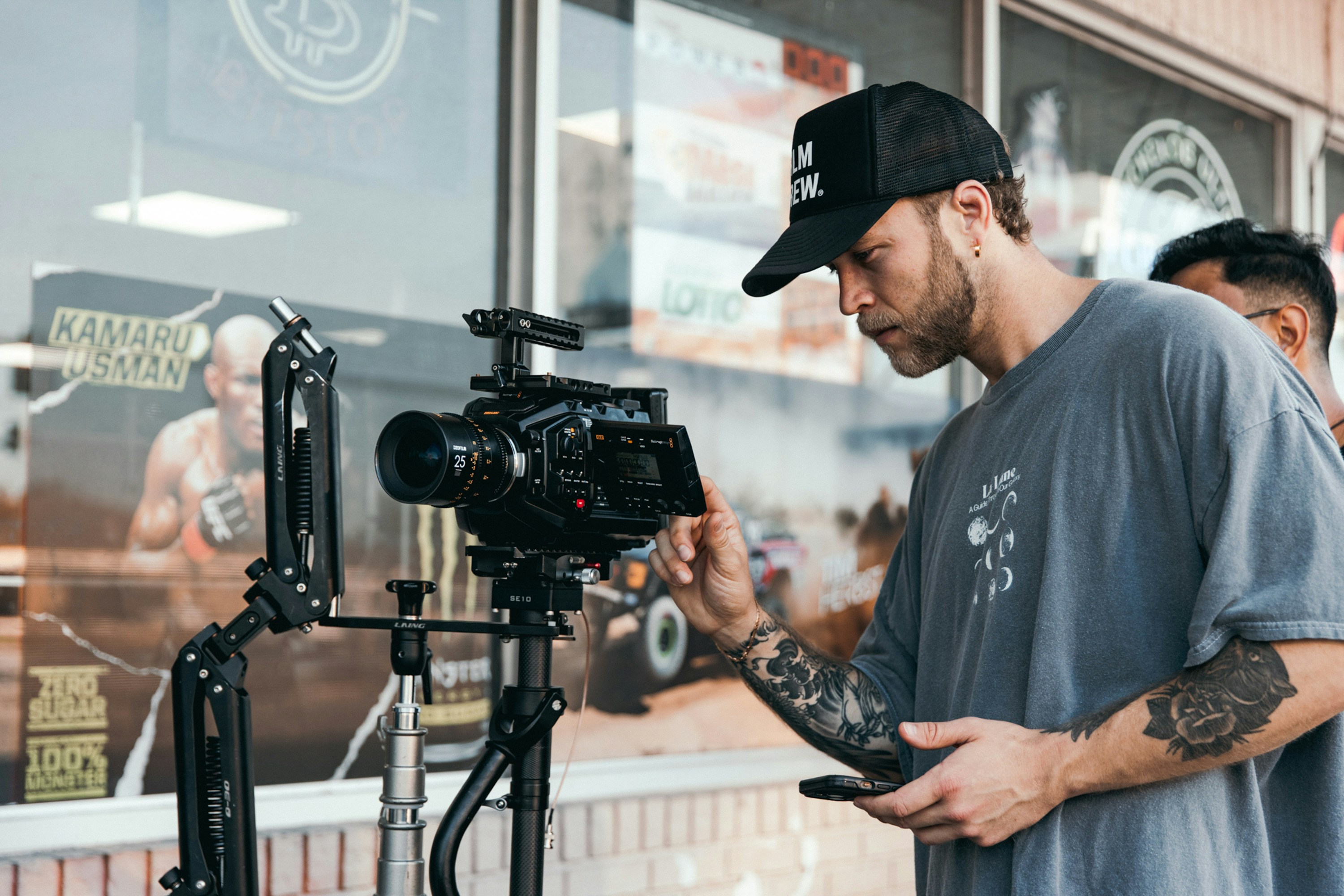The Future of Voice Cloning in Music
Written by
Published on
January 19, 2024
Understanding Voice Cloning Technology
Voice cloning technology, a marvel of artificial intelligence, is rapidly becoming a staple in the music industry. With the ability to replicate and generate human-like speech and singing, AI voice cloning is not just a futuristic concept; it's a present-day tool that's reshaping how music is produced. As an independent music producer, you understand the importance of staying ahead of the curve. Embracing voice cloning could be your next step in streamlining your creative workflow and carving out a unique space in the musical landscape.
At its core, voice cloning is a technological wonder that allows the creation of digital replicas of human voices. These AI-generated voices can sing, speak, and emote, mirroring the nuances of their human counterparts. But what does this mean for you, the creative force behind the music? It means that the once-impossible is now within reach, with a projected market size of $7.9 billion by 2030 and a remarkable CAGR of 25.2%. This growth is a testament to the transformative power of voice cloning in the music industry, paving the way for innovation and new artistic possibilities.
Choosing the right AI voice cloning software can be overwhelming, given the plethora of tools available. The key is to look for software that not only delivers high-quality audio but also offers a range of voices and the flexibility to customize them to your project's needs. When comparing different AI voice cloning tools, consider features like language support, emotional range, and integration capabilities.
Voice Cloning in Music Creation
The use of AI in music creation is not a fringe movement. A staggering 59.5% of artists are now utilizing AI to craft their music, as revealed by Ditto Music. This data reflects a significant shift towards technology-assisted creativity. For independent producers, AI voice cloning offers a plethora of benefits. It brings efficiency, allowing you to produce vocal tracks rapidly without compromising quality. It offers flexibility, giving you the tools to experiment with various vocal styles and textures. And it's cost-effective, reducing or even eliminating the need for session vocalists.
Still, with new tools come new responsibilities. As you integrate AI-generated vocals into your music, it's vital to consider the ethical implications and strive to maintain the integrity and originality of your work. AI should enhance your creativity, not replace it.
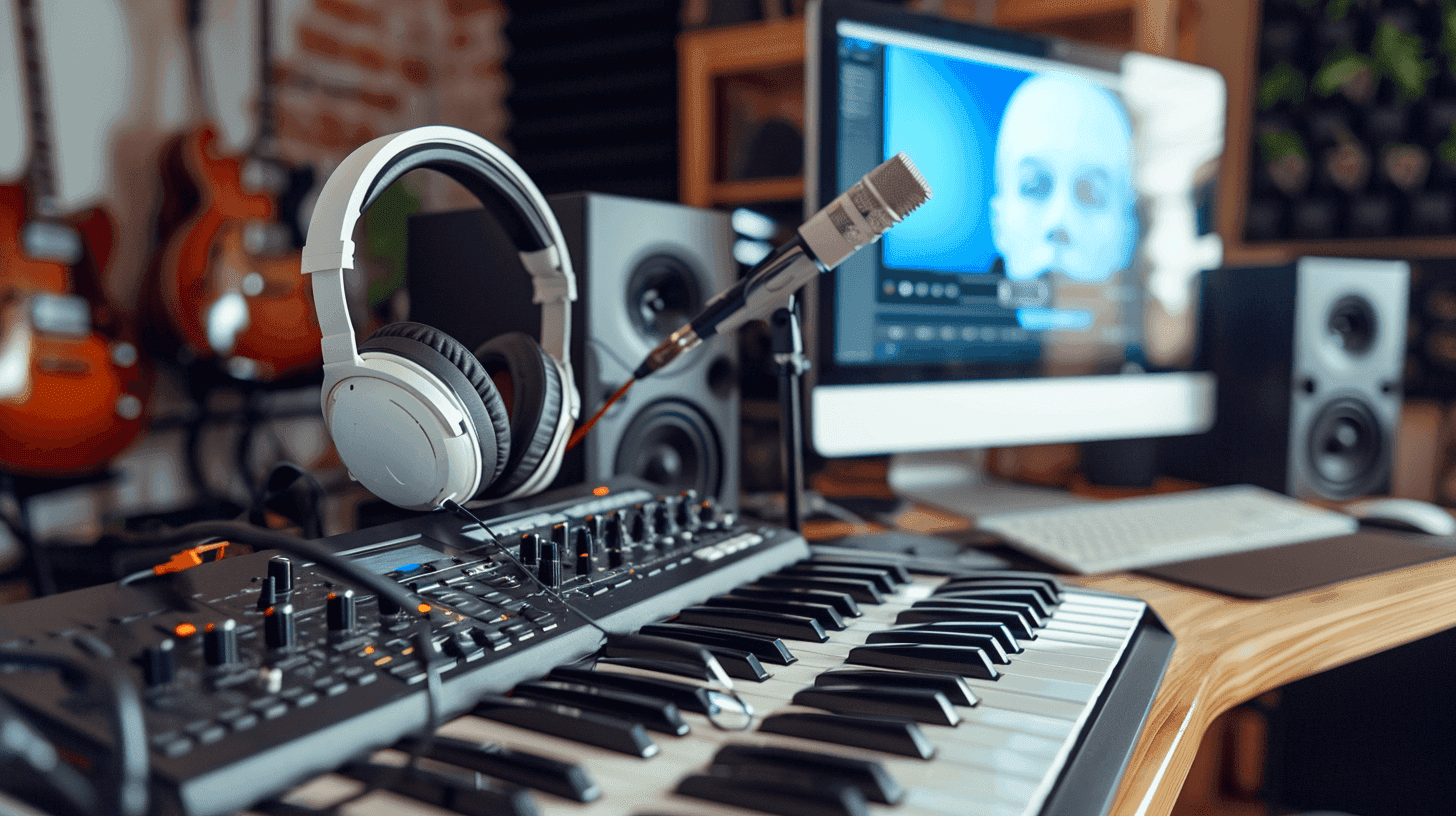
How to Integrate Voice Cloning in Your Music Production Workflow
Integrating AI voice cloning into your production workflow involves three fundamental steps. First, select an AI voice generator that aligns with your artistic vision and technical requirements. Next, decide whether you want to create a unique voice from scratch or use a pre-existing model. Finally, incorporate the AI-generated vocals into your tracks, blending them seamlessly with the other elements of your music.
While working with AI-generated vocals, remember that the goal is to achieve authenticity. Take the time to fine-tune the output, ensuring that the voice cloning serves the song, not the other way around. Blending AI voices with live performances can yield a rich, dynamic sound that is both innovative and emotionally resonant.
When it comes to maintaining a unique sound, consider the following best practices:
Use AI voice cloning as a starting point, then personalize the output to match your artistic style.
Experiment with different voice models and settings to find the perfect fit for each project.
Combine AI-generated vocals with live recordings to create a blend that is both fresh and familiar.
As you navigate the integration of voice cloning into your music-making process, it's essential to stay informed about the latest developments in the field. Keeping an eye on the voice cloning market's growth, projected to expand at a CAGR of 17.2% by 2028, will give you an edge. By understanding the trajectory of the technology, you can anticipate the tools and features that will become available and how they might inspire or change your creative approach.
Future Trends and Developments in Voice Cloning
The realm of AI voice technology is brimming with potential, set to influence the very fabric of music production. As you look to the horizon, you'll see a landscape ripe with innovation. The trend is clear: voice cloning is on an upward trajectory, with significant developments anticipated in the coming years. By keeping pace with this growth, you can harness the full potential of AI to enhance your music.
One area of development that is particularly exciting is the increasing realism of AI-generated voices. As algorithms become more sophisticated and datasets grow, the line between human and AI voices continues to blur. This evolution will allow for even more creative expression, enabling you to craft vocal performances that are indistinguishable from those of live singers.
Another trend to watch is the rise of custom voice generation. As voice cloning technology becomes more accessible, the ability to create unique, personalized voices will become a key differentiator for artists. This could lead to the emergence of new genres and styles, driven by the unique qualities of AI voices.
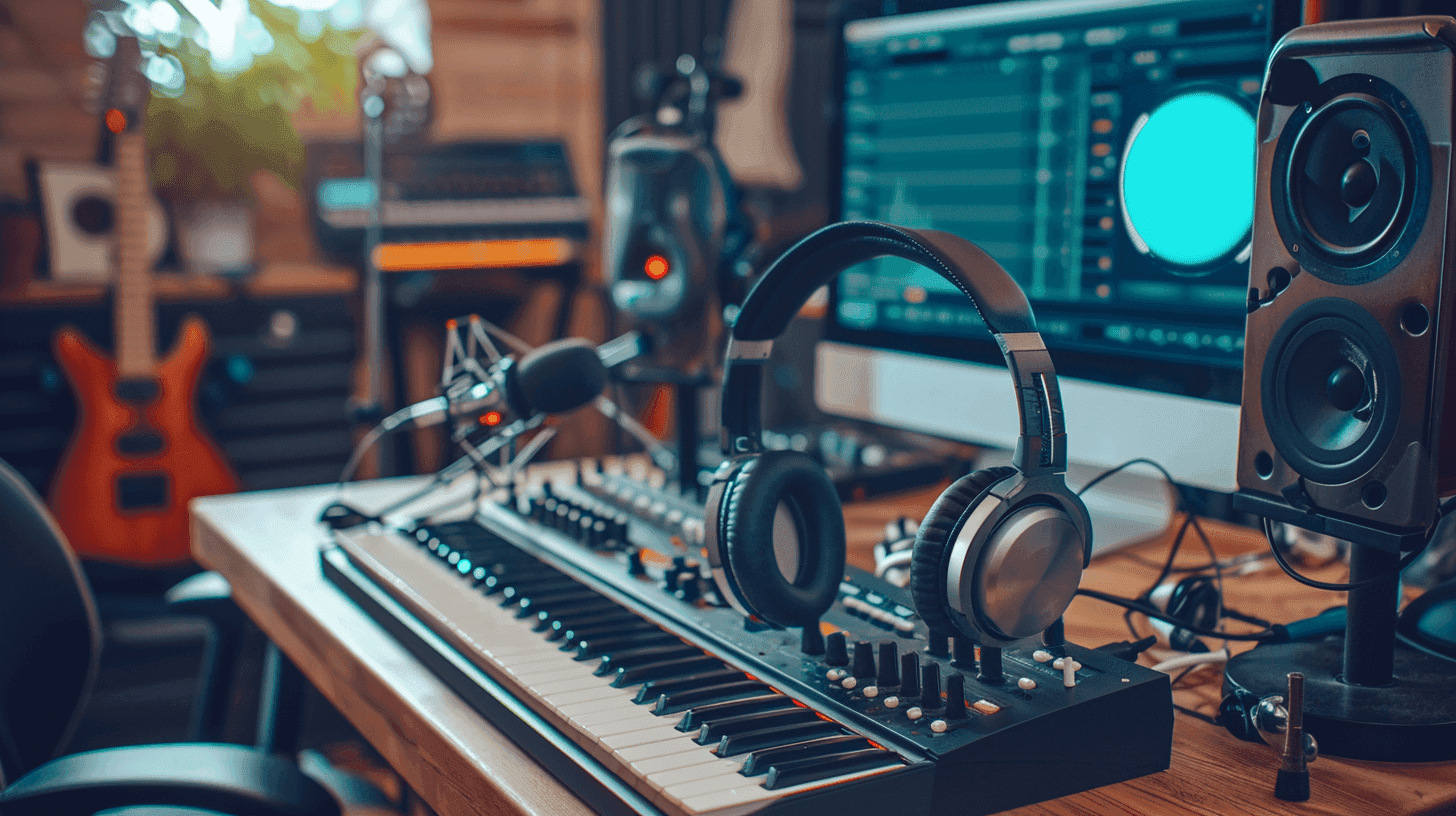
Navigating Legal and Copyright Issues
As with any disruptive technology, voice cloning raises questions about legal and copyright issues. Protecting your music from copyright infringement is crucial, and understanding the legal landscape is paramount. The key is to use voice cloning technology ethically and responsibly.
One approach is to ensure that you have the right to use the voices you clone, especially if they are based on real people. Always seek permission and understand the terms of use associated with any voice cloning software you employ. Additionally, consider registering your AI-generated vocal tracks to safeguard them as your intellectual property.
Strategies for protecting your AI-generated vocal creations include:
Documenting the creation process, including the software settings and choices you make.
Keeping records of any licenses or permissions associated with voice models.
Staying informed about copyright laws and how they apply to AI-generated content.
By proactively addressing these legal considerations, you can focus on the creative aspects of music production, secure in the knowledge that your work is protected.
Conclusion
The integration of voice cloning into music is more than a trend; it's a new frontier in artistic expression. As an independent music producer, embracing this technology can open up a world of possibilities, from unprecedented efficiency to novel forms of creativity. While challenges exist, particularly in the realms of ethics and legality, the potential benefits are vast.
Remember, the future of music production is not just about the tools we use but how we use them. Voice cloning is a powerful instrument in your creative arsenal, one that, when used with care and imagination, can elevate your music to new heights.
Additional Resources
For those eager to continue exploring the possibilities of AI voice cloning, a wealth of resources awaits. Online forums and communities dedicated to music production are excellent places to share experiences and learn from fellow creators. Webinars, workshops, and tutorials can provide deeper insights into using AI in music, ensuring that you stay at the cutting edge of this exciting field.
As you continue to shape the sound of tomorrow, remember that voice cloning is not just about technology—it's about the artistry and vision that you bring to the process. With AI as your collaborator, the future of music is yours to define.
